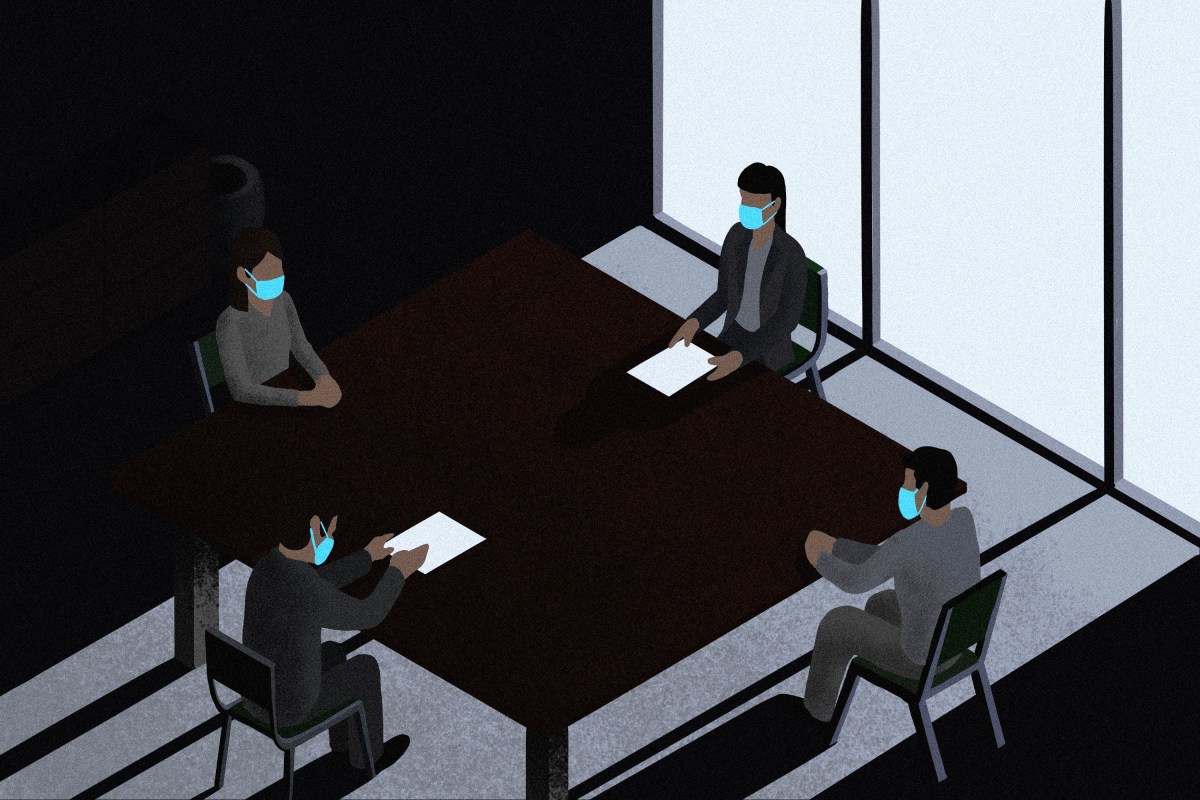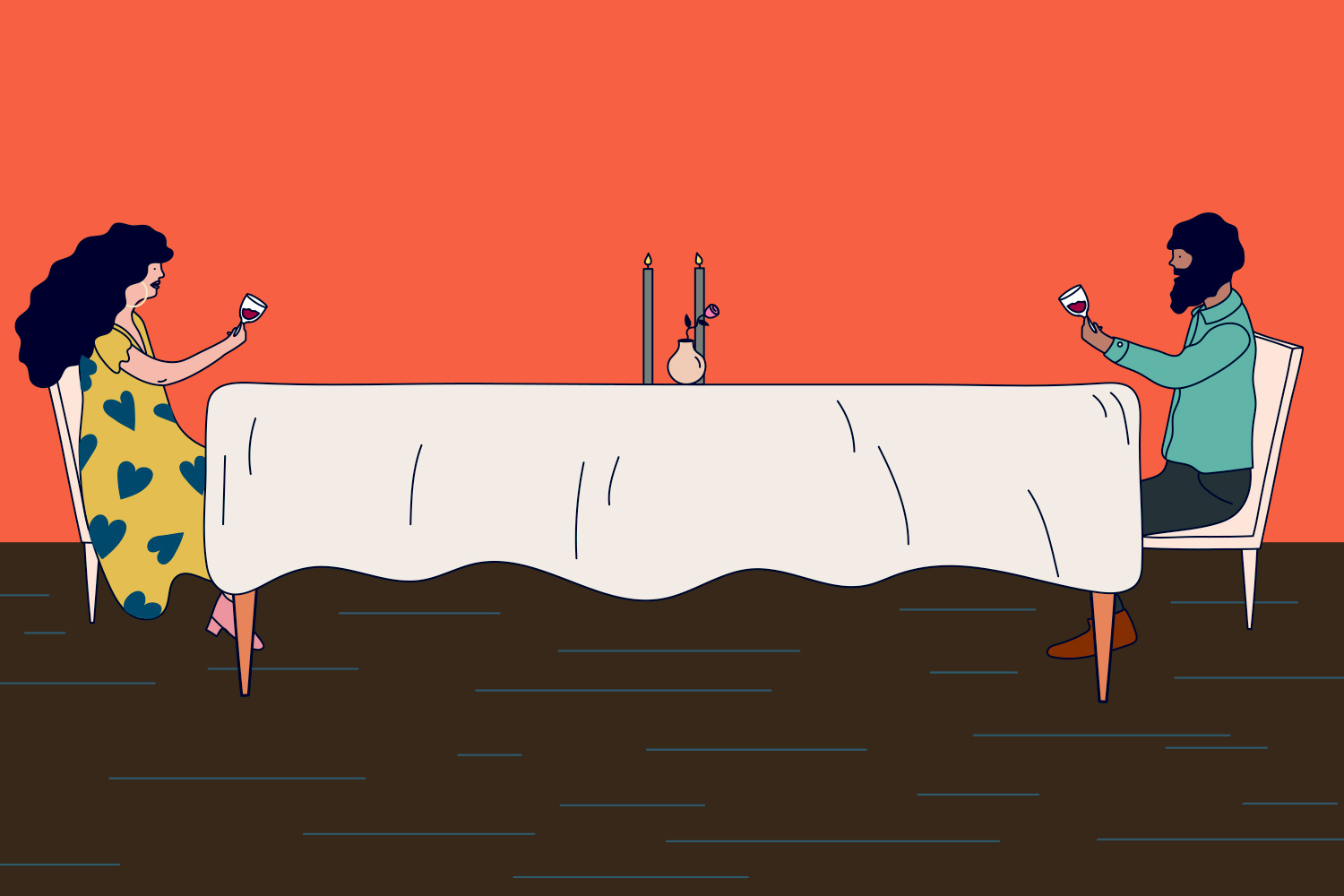When the Chinese government eased quarantine restrictions for several cities in mid-March, something peculiar happened. Finally able to breathe fresh air after weeks in forced conjugal captivity, scores of citizens rushed to a common destination. They didn’t go to parks or popular restaurants. Instead, they hurried to their lawyers.
As Bloomberg News recently reported, divorce filings in China have skyrocketed over the past two weeks. Confined living quarters, it appears, exacerbated underlying marital problems while also breeding new conflicts. One attorney in Shanghai said his caseload has increased 25% since the city loosened its restrictions. Business is booming, to the degree that courts are facing a severe backlog as they attempt to process the record number of filings.
Throughout this interminable collective nightmare known as COVID-19, the notion of certainty has lost its value. The pathology of this virus, the extent of the damage it is inflicting on all of our systems (political, financial, biological, psychological), the ability of governments to protect their citizens — none of these are certain. One of the few things we’ve been able to count on, however, is that China appears to be a weathervane for the rest of the world.
Trent Redman is a civil attorney in West Virginia with more than 20 years of experience. I asked him whether the divorce numbers coming out of China are a sign of things to come in the U.S.
“It is on and popping,” he said. “People can’t deal with each other under normal circumstances. Can you please tell me how the hell they’re going to deal with each other while everybody’s locked down?”
Redman predicts we’ll see an initial spike in divorce filings followed by a plateau, and then another spike. “The relationships that were so volatile before all of this happened, those are going to explode.”
The second wave of divorces, Redman believes, will come from the couples who had healthy relationships before the pandemic. These are couples who likely lead lives that keep them apart for eight or more hours each day while their kids go off to school or daycare. When the circadian rhythms of their domesticity evaporate, partners who lack the tools to communicate and adapt will struggle.
Whether it’s brought about by financial strain — like a spouse losing their job — or tension that emerges from an unequal division of domestic responsibilities, it is clear that the new normal will challenge couples’ ability to function as a cohesive unit. There is no simple antidote to the mutual resentment this situation can breed — though the Malaysian government recently tried, launching a disturbing campaign that encouraged women working from home to wear make-up and avoid “nagging” their husbands when asking for help with chores.
Of course, factors more acute than resentment will continue to end marriages. Infidelity, a perpetual leading cause of divorce, isn’t going anywhere. Quarantine measures may stifle the physical act, but physical confinement will make it much easier for spouses to catch partners with a wandering eye.
Shortly after our interview, Redman texted me: “My wife and I were just talking about how many people who are creeping on their phones with exes and next(es) are going to be outed just by leaving their phone on the counter. And what the immediate devolution of the relationship in a closed space looks like.”
This devolution is where things get scary. Last week, António Guterres, the Secretary General of the United Nations, delivered a stark warning about the pandemic’s overlooked victims.
“Over the past weeks, as the economic and social pressures and fear have grown, we have seen a horrifying surge in domestic violence,” he said during a virtual news briefing. “For many women and girls, the threat looms largest where they should be safest — in their own homes.”
According to U.N. data, the number of calls to domestic violence help lines in Malaysia and Lebanon has doubled month over month. In China, that figure has tripled. This disturbing trend is not approaching the United States — it has arrived. Reports of child abuse are surging in some states, calls to suicide hotlines are increasing nationally, and law enforcement lacks the resources to protect some of its most vulnerable citizens. As Amanda Taub wrote in The New York Times last week, “domestic abuse is acting like an opportunistic infection.”
Marriages and relationships are going to dissolve. That happens every time there are economic downturns or any other triggering events that cause national stress levels to rise. But what happens when the end of a relationship is ugly and people are trapped inside with all that combustible animosity and no outlet? And what about the kids who are trapped there with them?
“That’s what scares me the most,” Redman told me. “Grownups can get divorced. I don’t care about that — happens all the time. They’re grownups, they can make decisions on their own. But these children are being forced to watch this. It’s not going to be good.”
What stands to make things worse is the fact that our legal system, much like China’s, will struggle to handle the abrupt rise in cases.
“We have a slow-reacting system as it is,” said Redman, who worked as a public defender and a prosecutor before starting his own practice in 2002. “With all the things that need to happen just to get a divorce, if everything is perfect, you’ll be divorced in a year. Our courts can’t process the volume with any expedience.”
People can’t deal with each other under normal circumstances. Can you please tell me how the hell they’re going to deal with each other while everybody’s locked down?
For couples with the ability to physically separate, this delay is inconvenient. For hostile couples who have no choice but to continue cohabitating, it is dangerous. Throughout our conversation, I sensed that Redman, a jovial and gregarious man, is deeply concerned about what the immediate future holds for American families.
“You ever see Rocky 3?” he replied when I asked about his outlook. “What Clubber Lang says when asked about his prediction for the fight? ‘Pain.’ My prognosis is grim for all of this.”
There are strategies couples can employ to combat that pain. Virtual counseling has become prevalent, though the cost may be prohibitive for some. The simple act of establishing a routine and creating clear boundaries and expectations can also go a long way. But communication is the key. That and finding moments of common joy amid all the stress.
Redman shared how he and his wife, his best friend of 24 years, were giving each other sideways glances after the third day of homeschooling their kids. He worried they were in for a rough night, but then they decided to put on Fast Times at Ridgemont High. The tension melted away.
When asked what advice he would give to couples to navigate this turbulent time, his answer was simple. “Laugh,” he said. “Just laugh, man. Because if we don’t laugh, we’re going to cry.”
The Charge will help you move better, think clearer and stay in the game longer. Subscribe to our wellness newsletter today.
















